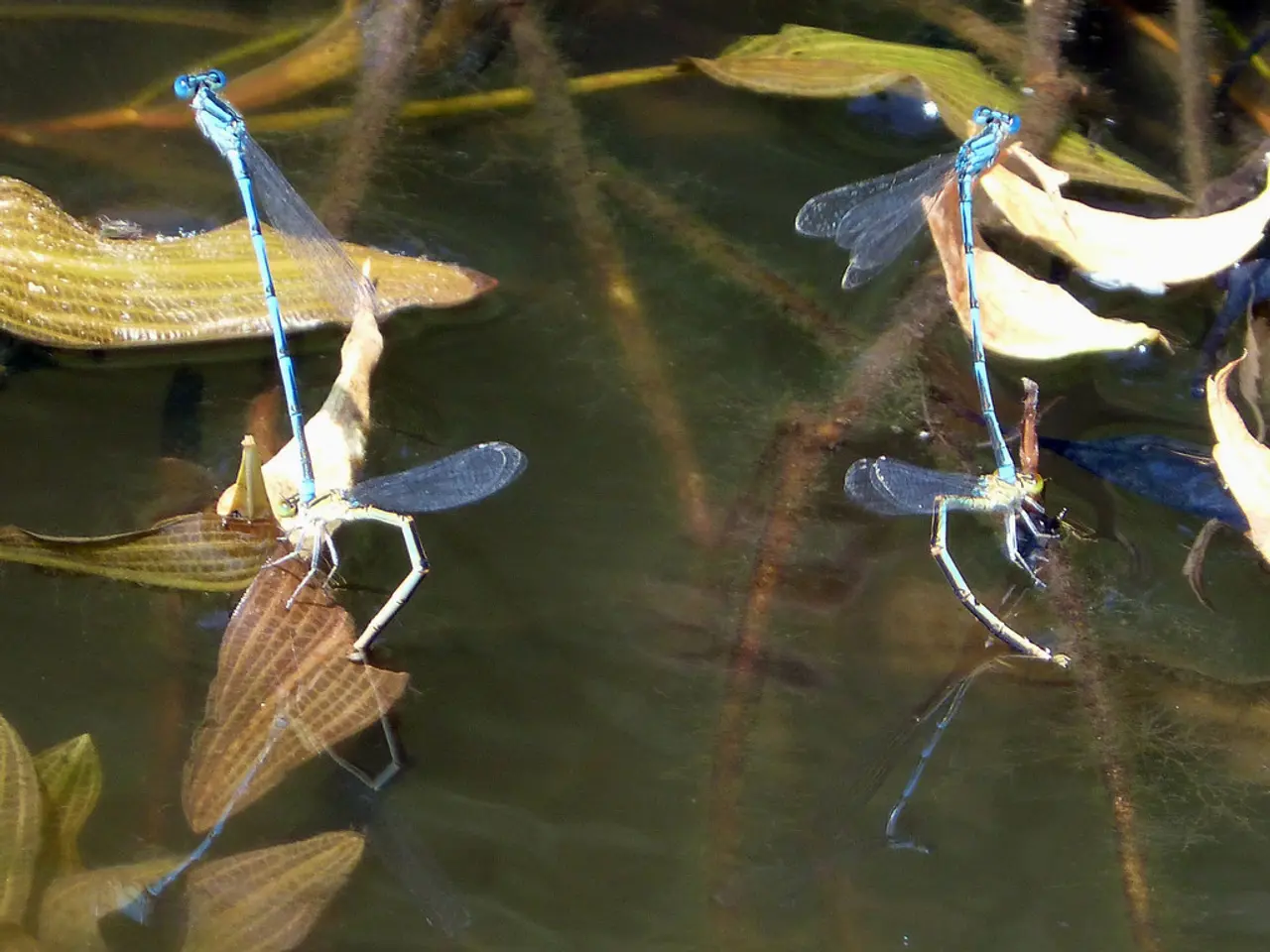Astana's Body of Water: A Play-by-Play of Astana's Lakes
In the heart of Kazakhstan, the capital city of Astana is undergoing a significant transformation as part of a long-term program aimed at improving the condition of its lakes and promoting ecological rehabilitation. This ambitious project involves a comprehensive approach that includes modernizing water management systems, restoring aquatic ecosystems, and ensuring sustainable development.
Recently, an eco-action was held in the city, with the goal of restoring water bodies of the Maly Taldykol system. The event was attended by employees of the scientific-analytical center, representatives of the akimat, volunteers, city residents, and media representatives. During the action, cleaning was carried out at sites No. 5 and 7 using modern domestic biological preparations.
The biological rehabilitation component of this project incorporates the use of beneficial microorganisms and bacteria, such as Bacillus subtilis, B. amyloliquefaciens, B. pumilus strains, EM-compost, and other agents. These agents help break down organic pollutants, suppress pathogenic flora, restore microbial balance, and improve water and bottom sediment quality.
The project is implemented in stages. First, the modern biological preparations are systematically applied. Then, the shoreline undergoes sanitary processing, and constant ecological control is maintained to track changes, assess the effectiveness of the applied technologies, and make timely adjustments to further cleaning measures.
The government of Kazakhstan has been at the forefront of these efforts, implementing large-scale modernization in the water sector. This includes the reconstruction of canals with the integration of digital water management technologies to improve water use efficiency and ecological conditions. The project is part of a broader national water strategy that includes rehabilitation of water bodies through integrated management approaches supported by major investments in infrastructure and technology.
Aidar RASHID, the chief specialist of the Environmental Protection and Nature Management Department of Astana, emphasized the importance of coordinated interaction between science, business, government, and society in solving environmental safety issues. Sanzhar TASHIBAY is another key figure involved in the project, working diligently to ensure the success of this ambitious undertaking.
Regular monitoring is an essential part of the project, with water samples taken during the cleaning process for subsequent laboratory analysis. This data is crucial for assessing the project's progress and making necessary adjustments to ensure the continued health and vitality of Astana's lakes.
In summary, Kazakhstan’s long-term program for Astana’s lakes involves integrated modernization of water infrastructure, canal cleaning and expansion, and the likely use of modern biological agents such as Bacillus subtilis and EM-compost to biologically rehabilitate aquatic ecosystems, all within a framework coordinated by national and regional water management reforms. This comprehensive approach is a testament to Kazakhstan's commitment to preserving and enhancing its natural resources for the benefit of its citizens and future generations.
[1] Water and Sanitation in Kazakhstan: Challenges and Opportunities. (2021). Retrieved from https://www.who.int/water_sanitation_health/publications/wash-in-kazakhstan.pdf
[2] Kazakhstan National Water Strategy. (2011). Retrieved from https://www.unesco.org/new/en/kazakhstan/resources/education/national-water-strategy-of-the-republic-of-kazakhstan/
- The eco-action in Astana showcased the collaboration between various sectors, including scientists at the scientific-analytical center, business representatives, and government officials, all working together to restore the Maly Taldykol system's water bodies.
- Aidar RASHID, the chief specialist of the Environmental Protection and Nature Management Department of Astana, highlighted the importance of such coordinated interactions for resolving environmental safety issues, mirroring the President's call for integrating science, business, government, and society in addressing these matters.
- Beyond the usage of modern biological preparations, Kazakhstan's ambitious project for Astana's lakes also involved updating the water management sector with digital technologies, emblematic of the nation's broader water strategy focused on modernization, infrastructure developments, and technology investments.




